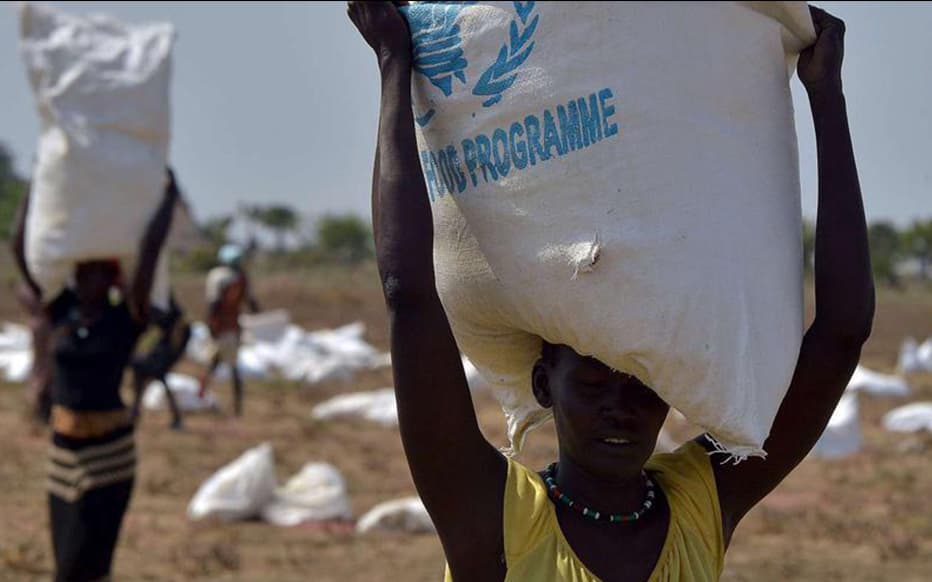Between ever-increasing needs and rising hunger, refugees are caught in the eye of the storm, warned the World Food Programme (WFP) on Monday to mark World Refugee Day.
With humanitarian needs multiplying worldwide and funding struggling to keep pace, the UN agency expects “imminent” “further cuts in food rations for refugees”. This grim warning comes at a time when the WFP has already been forced to drastically reduce rations for refugees across its operations.
“At a time when world hunger far outstrips the resources available to feed all the families who desperately need WFP assistance, we are forced to make the heartbreaking decision to reduce food rations for refugees who depend on us for their survival,” WFP Executive Director David Beasley said in a statement.
Rations halved for three-quarters of refugees in East Africa
The WFP has had to cut rations by up to 50% for three-quarters of the refugees supported by the UN agency in East Africa. Ethiopia, Kenya, South Sudan and Uganda are the hardest hit by this drastic reduction in aid.
In West Africa, the disruption of aid is imminent, explained the WFP. Severe funding constraints in West Africa, where hunger has reached its highest level in a decade, have forced the WFP to drastically reduce rations for refugees living in Burkina Faso, Cameroon, Chad, Mali, Mauritania and Niger.
In southern Africa, the UN agency assists an average of 500,000 refugees every year. This year, financial resources remain insufficient to meet the very basic needs of refugee households, and disruptions are imminent in Angola, Malawi, Mozambique, Tanzania and Zimbabwe.
Across the continent, the WFP is being forced to prioritize its aid to ensure that vital foodstuffs reach the most vulnerable families first. These “painful” decisions very often leave refugees without support at a time when food aid is the difference between life and death.
WFP needs $600 million for its operations in sub-Saharan Africa
According to the latest figures published by the United Nations Refugee Agency (UNHCR), 67% of refugees and asylum seekers were from countries experiencing a food crisis in 2021. This situation, combined with devastating conflicts and extreme climatic events, is hitting refugees hard.
For David Beasley, these decisions are heartbreaking: “Refugees depend on us for their survival,” he said. “But without urgent new funds to support refugees, many people facing starvation will be forced to pay with their lives,” insisted the WFP chief.
Indeed, the war in Ukraine has exacerbated the global crisis, not only creating 6 million additional refugees, but also driving up the price of basic commodities, particularly cereals.
In 2021, the WFP helped almost 10 million refugees worldwide.
To support refugee operations in sub-Saharan Africa over the next six months, the World Food Program needs $600 million. This includes $411 million for East Africa, $113 million for Southern Africa and over $76 million for refugees in West Africa.
The Editor (with GB and CA)



